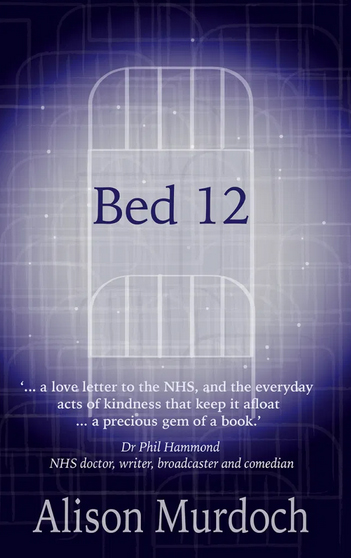Alison Murdoch has had a varied career as a writer, contributor to BBC Radio and also works for a charity based in a London Tibetan Centre.
From the unassuming title describing the intensive care unit (ICU) location of the author’s husband over one entire summer, to the religious references, I found Bed 12 to be an informative yet rewarding and heart-warming read. Bed 12 is not a neurological textbook but a first-hand poignant experience of dealing with a loved one with life threatening suspected viral encephalitis. This enriches the book greatly and I would recommend it to all, since it offers an additional perspective to medical students and others learning about neurology. The book is an affirmation to all the busy hospital staff that relatives and patients are deeply thankful and grateful to for the unrelenting intensive care and attention given in our wonderful NHS hospitals. The book is well written, humorous at times, and accessible, even to those not medically trained.
Simon had firstly become unwell with a headache. He subsequently arrived home from work unsteady on his feet, eyes half closed and very quickly deteriorated, unable to speak, agitated and almost unconscious. The strength and calmness of the author Alison Murdoch during the acute illness leading to her husband’s coma and long stay in ICU is uplifting and reassuring and should I find myself in the same boat I will be re-reading this book. Further chapters detail the gravity and realities of over a month’s stay in ICU when the outcome was less than certain and the impact this had on the author who maintained an almost constant vigil. The uncertainty that surrounds the outcome shows there is still much to be learnt about this devastating illness.
The breakthrough chapter documents the awakening from the coma, the fast exit from ICU and the differences in intensity of hospital care. Aftermath details the move home, the continuing impact of the illness on the wider network and the long recovery. The Epilogue is written from the patient’s (Simon’s) perspective of his illness. He has no recollection of his time in ICU, a reminder that it is loved ones that bear the deepest memories of this time. It is notable that it took over a year for him to recover some functions despite a ‘miraculous recovery’ from encephalitis.
As a scientist directing a laboratory helping to diagnose autoimmune encephalitis, the grittier detail of this illness is not spared in this book and this is a welcome reminder. The mark of encephalitis is deep and longstanding, affecting a much wider group of people than just the patient and for a much longer time period than the hospital stay.
